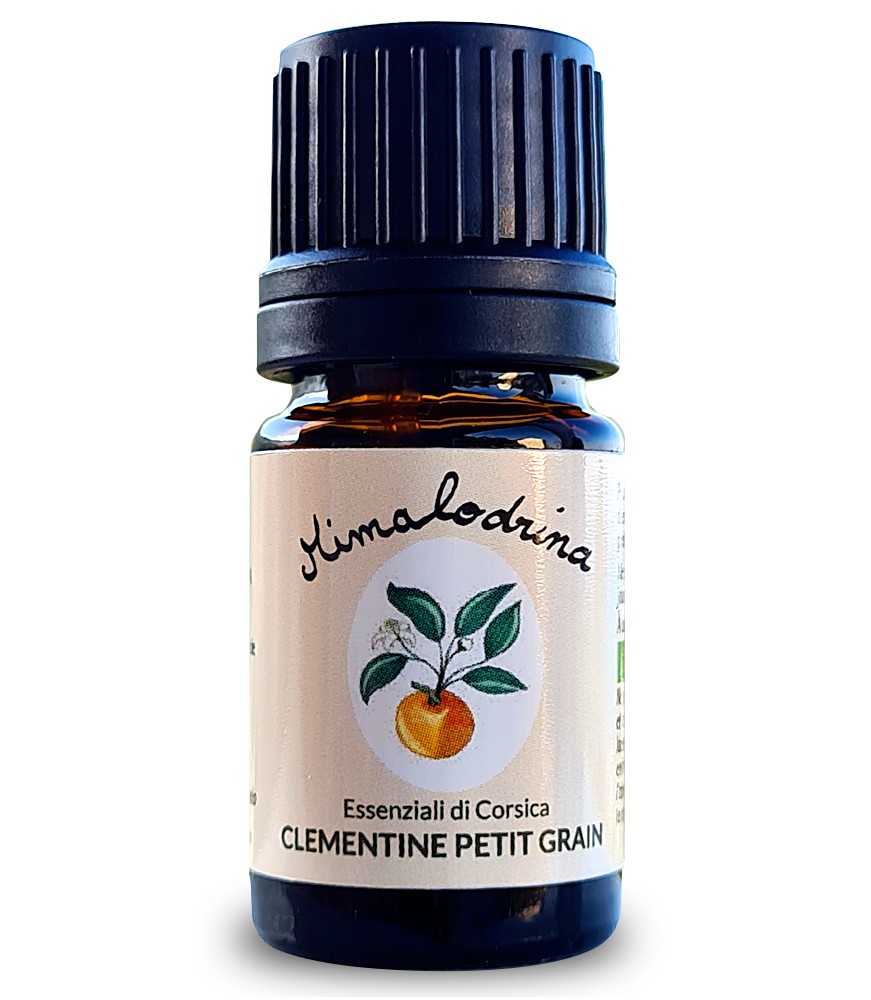Clémentine Petit Grain Organic 5ml Essential Oil
ORGANIC CLEMENTINE PETITGRAIN ESSENTIAL OIL
Citrus clementina petit grain
Usage: Topical (always diluted in carrier oil!) massage, local friction (on chest, back, and soles of feet before bedtime) - Bath - Diffusion.
Properties: Calming, sedative, antidepressant, nervous antispasmodic, rebalancing.
If in doubt or have questions, do not hesitate to seek advice from your doctor or pharmacist.
Name: Petit-grain Clémentinier.
Botanical Name: Citrus clementina petit grain.
Extraction Method: Hydrodistillation.
Distilled Part: Young branches, leaves, and small fruits.
Plant Origin: Corsica.
Precautions for Use:
Not recommended during the first 3 months of pregnancy and while breastfeeding. Can be dermo-caustic in its pure state. Photosensitive (like all citrus oils), do not expose skin to direct sunlight for 12 hours after application.
Quality:
Commitment:
All our essential oils are 100% organic, pure, natural, complete, unaltered, meaning they contain all the aromatic components of the plant.
Cultivation:
Our essential oils come from endemic plants grown in plots of land in Cap Corse, respecting nature, the plant, and humans. That's why we are Ecocert certified. Products from wild harvesting adhere to the "Corsican Wild Harvesting Charter." Other essential oils sold on our website are also from organic farming.
Appearance: Clear liquid.
Color: Pale yellow to orange.
Scent: Woody, somewhat green.
Composition:
Main chemical constituents: LINALOOL, SABINENE.
Allergens: Limonene, Linalool, Neral, Geranial, Citronellol, Geraniol.
The composition of essential oils varies from year to year because the conditions in which the plant grows are never identical. The chemical composition of the oil in your bottle is unique as a result. It is available upon request; please send us an email using the "contact" tab to obtain it.
Usage: Topical (always diluted in carrier oil!) massage, local friction (on chest, back, and soles of feet before bedtime) - Bath - Diffusion.
Properties: Calming, sedative, antidepressant, nervous antispasmodic, rebalancing.
Possible Synergies: Fine Lavender, Petit Grain Bigarade.
Packaging: 5 ml amber glass bottle with a dropper cap.
Storage: Store preferably away from air, heat, and light.
*ESSENTIAL RULES FOR USING ESSENTIAL OILS
1. Seek Professional Advice: Before using essential oils, it is recommended to seek advice from a doctor, a specialized pharmacist, or an aromatherapist.
2. Follow Prescribed Dosage: Pure essential oils contain 100% active ingredients. It is important to follow the instructions for use and duration of use.
3. Avoid for Pregnant and Breastfeeding Women: Although not all essential oils are prohibited during pregnancy or breastfeeding, their use is discouraged during this period. The reason is simple: the active ingredients they contain can pass through the placenta (and affect the fetus) and into your milk.
4. Prohibited for Young Children: Aromatherapy can be dangerous at certain ages. It is prohibited for children under 3 years of age and strongly discouraged for children under 7 years of age, especially due to its irritating, allergenic, and sometimes neurotoxic effects.
5. Do Not Apply to Mucous Membranes: Regardless of how they are used (absorbed or applied to the skin), essential oils should never be used undiluted on mucous membranes, such as the ears, nose, eyes, or intimate areas.
6. Wash Hands After Each Use: You should thoroughly wash your hands after applying essential oils. If you don't, their active ingredients will continue to penetrate your tissues, and if you touch your eyes, for example, you may be in for an unpleasant surprise.
7. Properly Store Them • Essential oils should be kept out of the reach of children and animals. • To preserve their quality, bottles must be tightly closed and stored away from heat and light. • Some essential oils should be stored in a cool place (especially citrus oils like lemon or orange). • It is not recommended to use them more than 2 years after opening the bottle. • If in doubt, don't hesitate to smell the bottle: if it has an unpleasant odor, it may have expired.



